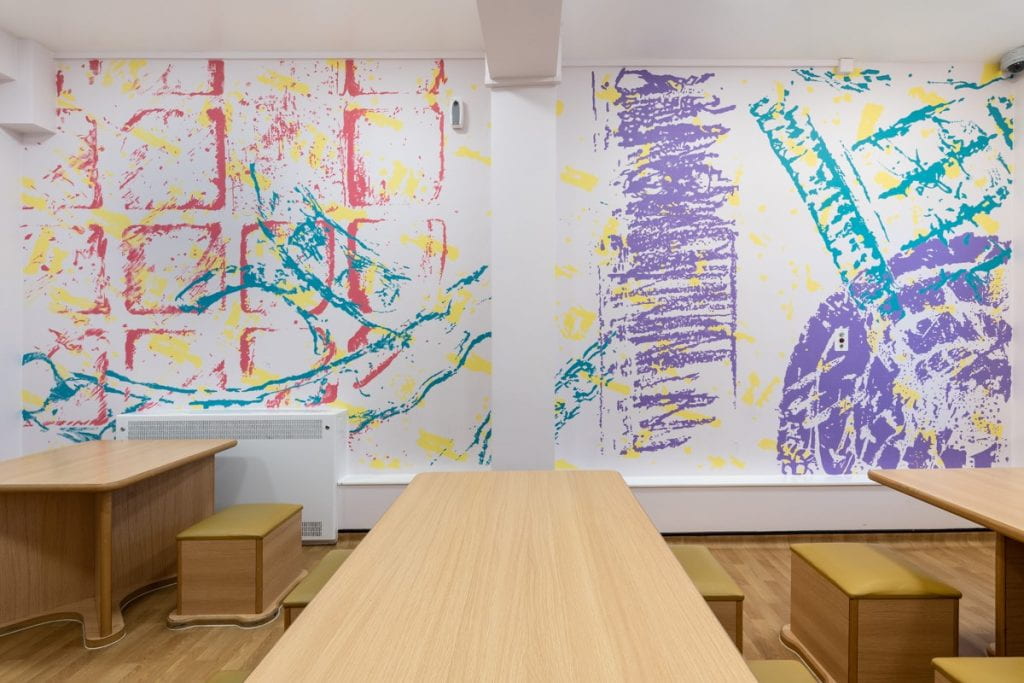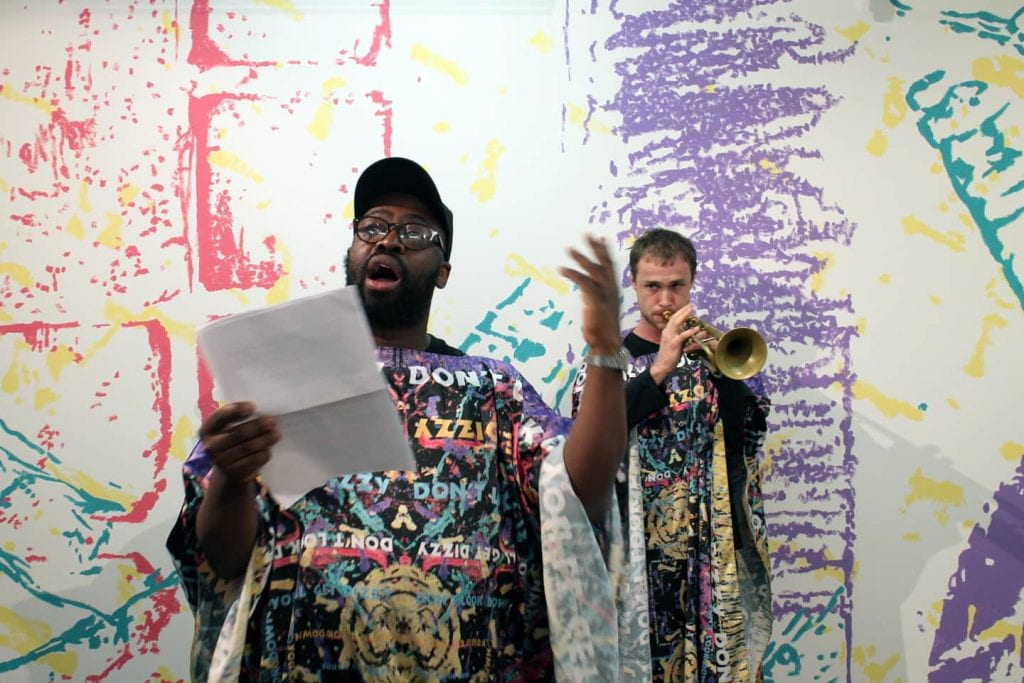Hospital Rooms is an arts and mental health charity that commissions extraordinary artwork for
NHS mental health inpatient units across the UK. Our vision is for all people in mental health
wards to have the freedom to experience extraordinary artworks. We believe in the power of art to
provide joy and dignity and to stimulate and heal.
It’s nice to have some thought put into the art, because we’re here 24/7 and
no-one wants to be in a hospital waiting room 24/7.
— Service User, Northside House
It is generally accepted that art can have positive benefits for mental health and wellbeing. However, service users in mental health units, who often have complex diagnoses, are disproportionately stigmatised and, therefore, face a series of barriers to creating meaningful collaborations and authentic engagement with arts and culture.
The work of Hospital Rooms is anchored in the idea of co-creation between the artists we work with, NHS staff and, most importantly, the service users on the wards. These workshops, often centred around reflective or ambiguous themes, directly inform the artworks installed in the units. Acclaimed artists make alongside service users and staff, breaking down existing hierarchies to empower service users to engage with art and creativity. With a value on process over outcome, these experiences are crucial in encouraging the sense of self-worth and autonomy of service users.
The fact that these works are made collaboratively and specifically for the units where the artist-led workshops take place fosters a genuine sense of ownership over the finished installations. This often means that the spaces where the artworks are installed are cared for and become more valued, a sharp contrast to the existing atmosphere of clinical spaces filled with stark furniture that often have been designed to expect negative behaviour without ever offering people the opportunity to inhabit those spaces in any other way. While the artwork itself is inherently valuable due to the level of craftsmanship and the calibre of the artist, the value that comes from the shared sense of ownership is equally important.
 Image caption: Harold Offeh, Croydon PICU, Photo by Damien Griffiths, Courtesy of Hospital Rooms
Image caption: Harold Offeh, Croydon PICU, Photo by Damien Griffiths, Courtesy of Hospital Rooms
I think the work of Hospital Rooms is really important because what it really is
saying is that there should be no barriers to culture, and there should be no
barriers to people experiencing and living with art.
— Harold Offeh
Harold Offeh’s work at Croydon Psychiatric Intensive Care Unit (PICU) is exemplary of this collective process from the germination of ideas during the workshop with service users to the actualisation of the artwork. During his workshop Harold encouraged service users to explore and map the architecture and spaces of the unit environment through taking wax rubbings, culminating in a series of patterns taken from different elements such as bricks, manhole covers and radiators. Harold scanned and layered these patterns to create a composition that was then projected and painted directly onto the wall of Croydon PICU’s Dining Room.
The visibility of service users works within this piece builds on this idea of ownership and involvement that goes some way to dismantling notions of elitism in art and how art, in fact, can be created by all and for all. These ideas have been recognised by the psychiatrist at Croydon PICU, who reflected on the correlation between the perception of time and effort spent on artworks and self-worth, saying “I think so often today patients and people generally feel uncared for. It feels like nobody gives a toss. So to see a work that suggests somebody did give a toss, because they spent a lot of time on it, that’s very important.”
Contrary to traditional ways of viewing artwork in cultural spaces that can be alienating and inaccessible, this work was made specifically for Croydon PICU, a secure mental health unit that members of the public would not necessarily have access to. The work was created solely for service users and staff at Croydon PICU, and is only now visible to the public because of its inclusion in the Science Gallery On Edge exhibition and its recreation at South London Gallery in an exhibition about the project as a whole. Both these iterations acknowledged that this work would not be possible without the community at Croydon PICU.
 Image caption: Harold Offeh performing ‘Mindfully Dizzy’ at South London Gallery, Photo by Ellen Lapper, Courtesy of Hospital Rooms
Image caption: Harold Offeh performing ‘Mindfully Dizzy’ at South London Gallery, Photo by Ellen Lapper, Courtesy of Hospital Rooms
Words by Molly Bonnell and Phoebe Eustance, Project Curators at Hospital Room
Click here to visit the Hospital Rooms site